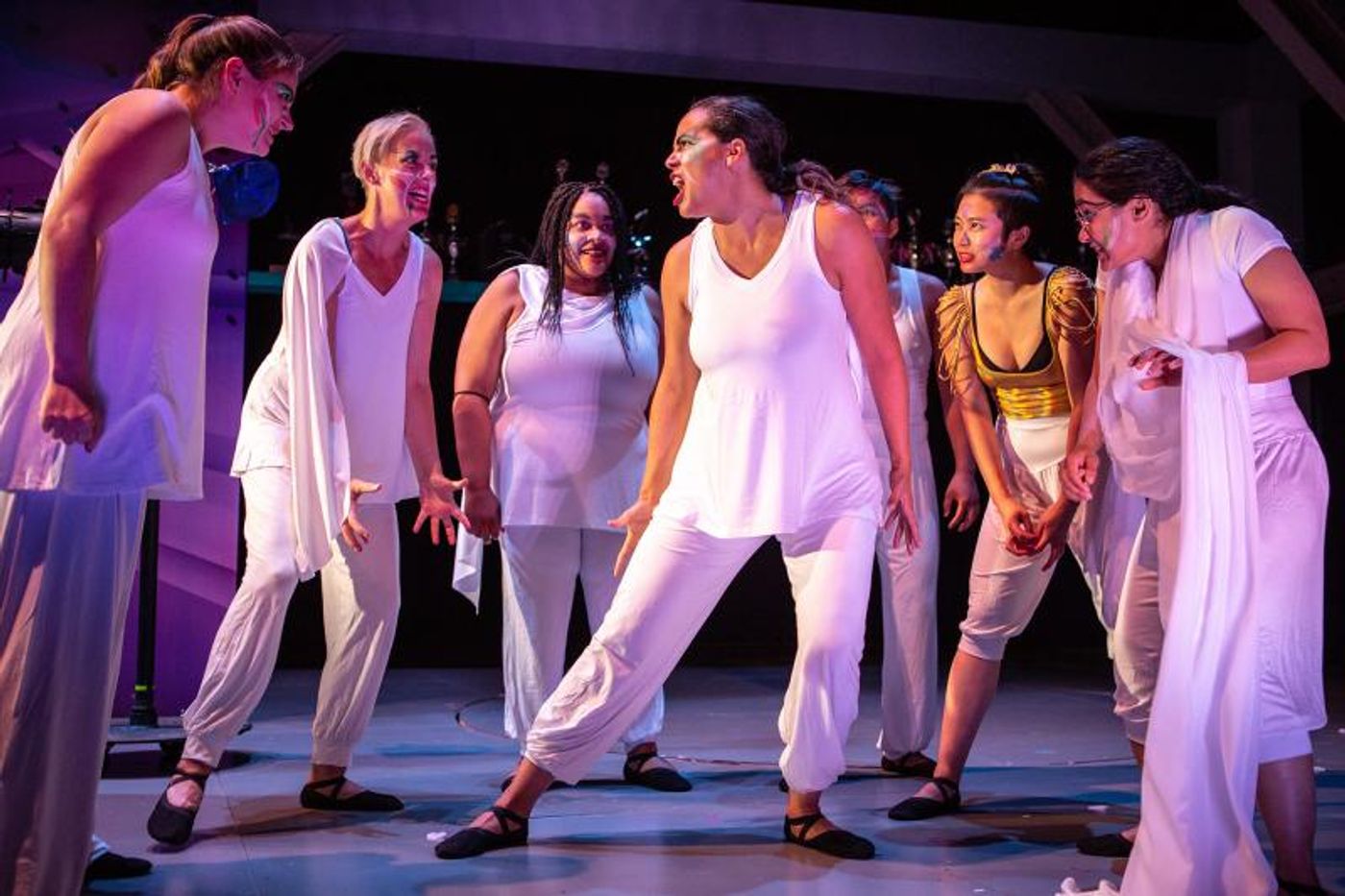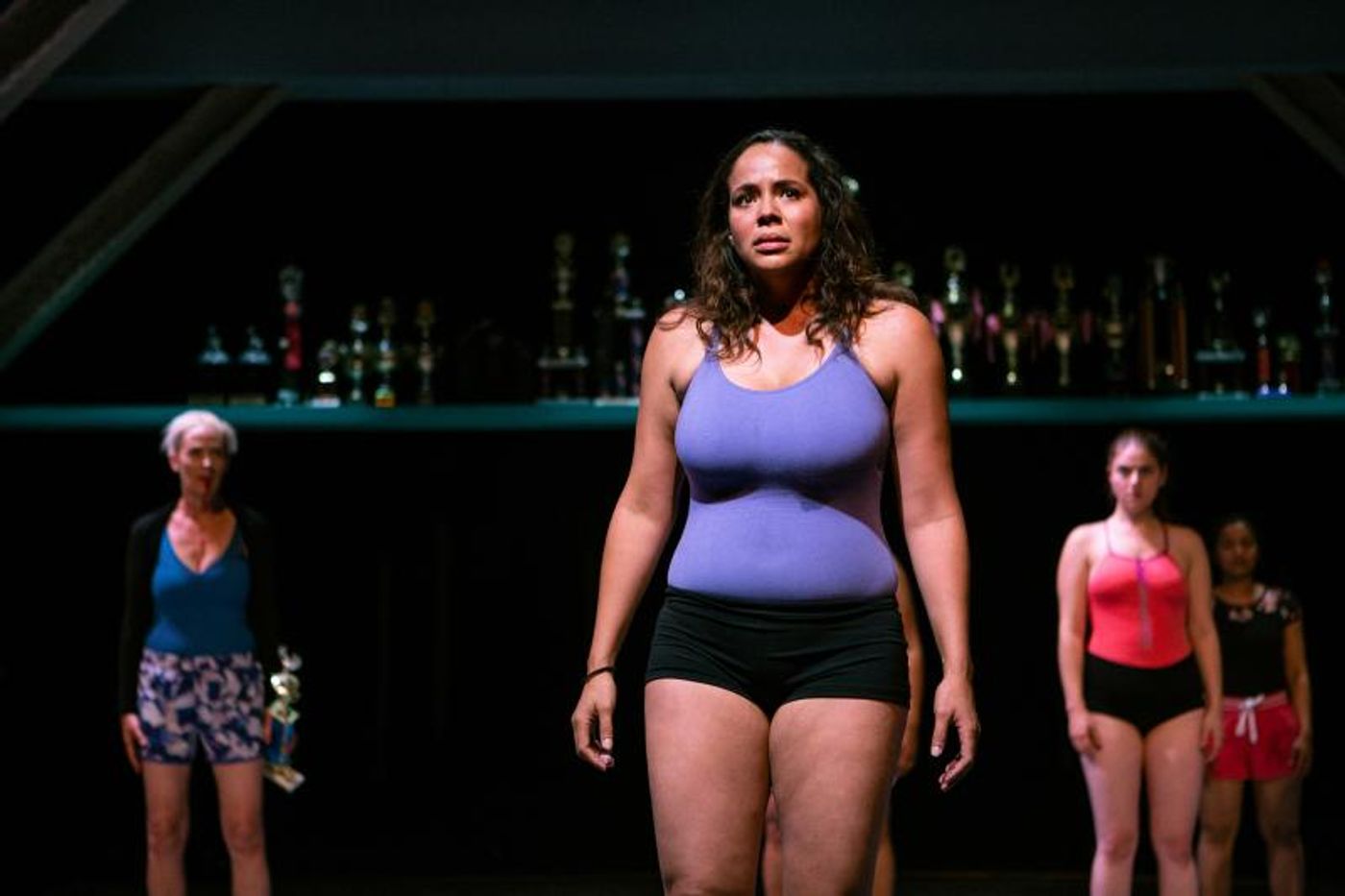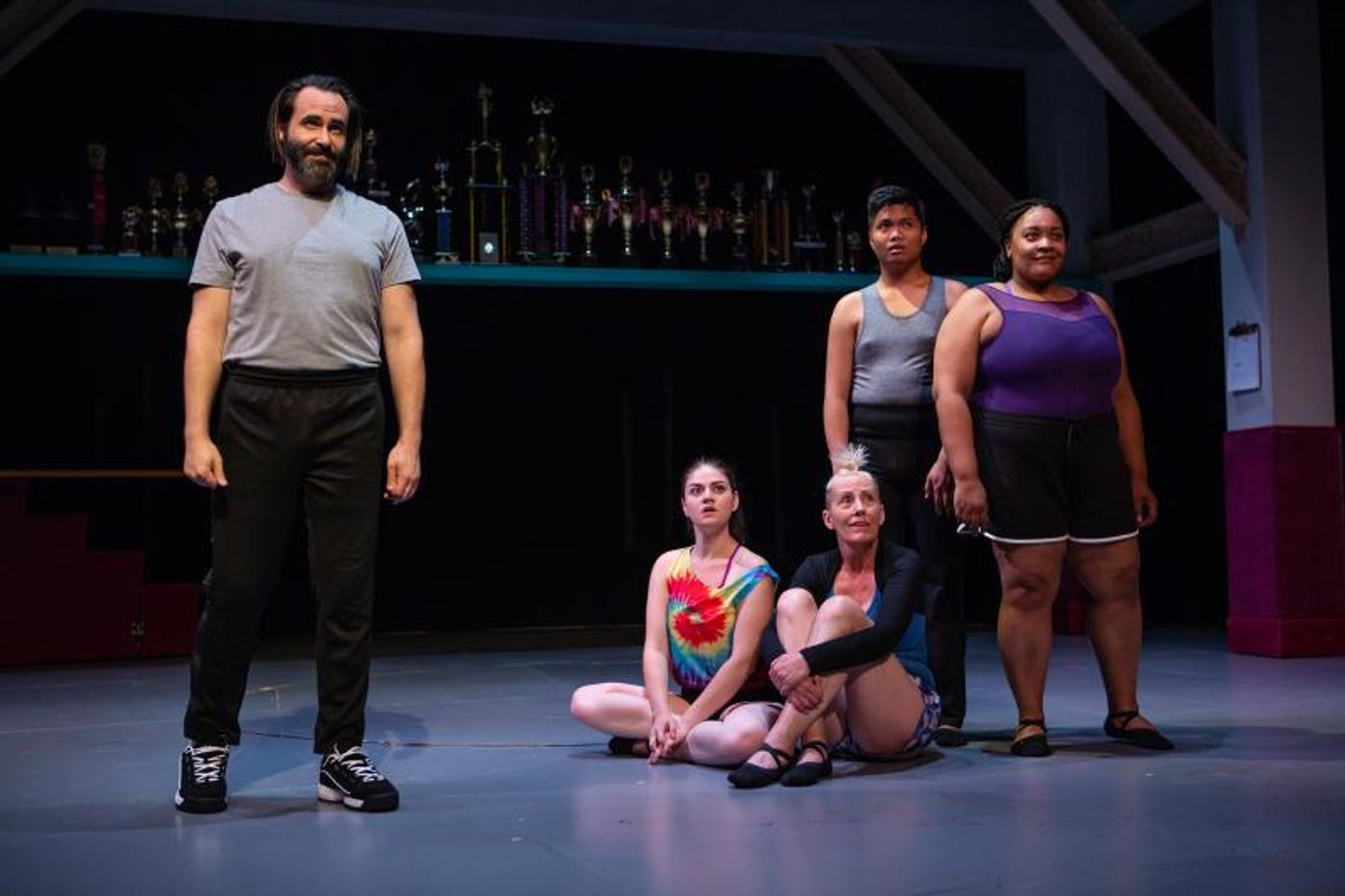Review: DANCE NATION at San Francisco Playhouse Intrigues but Ultimately Mystifies

I was super excited to learn that SF Playhouse was kicking off its 19-20 season with Clare Barron's "Dance Nation" based on what I'd read and heard about its 2018 world premiere at New York's Playwrights Horizons. I was certain it was going to be right up my alley: an edgy, satirical, unsettling play that looks at gender, body image, burgeoning sexuality and our unhealthy obsession with competition and winning - and from a feminist perspective to boot. As added enticement, the play won the prestigious Susan Smith Blackburn Prize and was a 2019 Pulitzer finalist. It thus makes me very sad to report that, having now actually seen the play, I am left mystified by the rapturous response it received in prior productions.
The play concerns a pre-teen, mostly female dance troupe in the midwestern US as they prepare for a series of increasingly amped-up competitions, laser-focused on their ultimate victory the whole way. Their male dance teacher instills in them the utter gravity of the journey they're embarked on, fills their heads with dreams of glory and deftly pits them against each other, all the better to maintain his own power. After winning the local competition, he ups the ante by creating a whole new routine about Mahatma Gandhi, no less. Meanwhile, the girls do basically what I assume pre-teen girls everywhere do - fret about their bodies, parents, talents and intrinsic worthiness as they chatter about the mysteries of sex. The lone boy among the troupe acts as both confidant and outsider. Along the way, some of the girls begin to both menstruate and also bleed from different parts of their bodies, sometimes for no apparent reason.
The play unfolds in a single, 105-minute act comprised of many brief scenes, some monologs and the occasional dance routine. The pre-teens are played by adult actors of varying ages and body types. Scenes run the gamut in tone from overtly comic to touchingly tender, with hints of an underlying, omnipresent unease. As they played out, however I frankly found them confusing, and often wondered why we were seeing a particular scene. As the play wore on, I struggled without success to connect the dots and it eventually felt like a very long 105 minutes.
At certain points, Ms. Barron's writing seems to be a blunt-instrument response to our current president in ways that give power to his hateful language rather than undercut it - the aforementioned bleeding from various parts of the girls' bodies, and in particular a scene with an evolving incantation that is repeated over and over again, always ending in the word "pussy." The repetitions didn't illuminate anything for me, didn't engage me, didn't move me. It was also unfortunate that this section brought to mind passages from two superior works, Ntozake Shange's "For Colored Girls..." and Eve Ensler's "The Vagina Monologues." While I can still vividly recall those two plays decades after having seen them, I already feel "Dance Nation" fading from my memory.

as Maeve (Julia Brothers), Sofia (Ash Malloy), and Connie (Mohana Rajagopal) look on.
The production itself doesn't always serve the play as well as it should. Director Becca Wolff has not successfully guided her cast to find the right overall tone for the piece. Most everything seems too literal and stays on the surface. While it is heartening to see female actors of so many different body types and colors, as a group they seem to be struggling to find their characters. The most successful is Lauren Spencer as Ashlee, who is given perhaps the strongest monolog in the play, reveling in her bodacious curves. Krystle Piamonte is also affecting as Zuzu, the girl who most seriously questions her talent and path in life. Unfortunately, I was mystified by Indiaa Wilmott's performance as Amina, the designated star of the team. Amina seems to possess neither that special spark nor the cutthroat drive that would make her a standout. While watching the play, I spent an inordinate amount of time wondering if that was the point - i.e. that Amina is actually not in any way special, and is thus a commentary on our collective need to elevate someone, anyone, to a sort of queen bee status.

Maeve (Julia Brothers), Luke (Bryan Munar), and Amina (Indiia Wilmott).
The physical production was sometimes helpful, sometimes not so much. The main set piece by scenic designer Angrette McCloskey was impressive and immediately evocative - an enormous arch, sort of a proscenium within the proscenium. It suggested a prototypical dance studio/gym, and included a display of massive trophies glittering overhead, serving as an omnipresent reminder of the troupe's past glories and an enticing promise of future ones as well. The arch was also - surprisingly, given its size - quite mobile and often manipulated to indicate a variety of settings and vantage points. Unfortunately, there were times it was placed so as to block my entire view of the actors. Also, numerous smaller set pieces were moved on and off with a great deal of fuss and to little dramatic effect, thus distracting from the actual scenes. I did love an additional, small playing space extreme upstage that materialized out of nowhere late in the play, its tight quarters creating an effective intimacy for the scenes played there. Wen-Ling Liao's lighting was quite effective, always cluing us in to the location of a specific scene and creating some lovely stage pictures along the way.
But in the end, I can't help feeling disappointed. Why didn't this play resonate for me or move me at all? Perhaps the answer to that can be found in the one performance that does continue to haunt me. Julia Brothers, as dancer Maeve, is the sole actor who nails both the physicality of a pre-teen and the subtle balance between surface comedy and unsettling undercurrents that I believe the play is aiming for. Yes, Ms. Brothers is aided by a kicky hairstyle that makes her stand out from the rest, but she wears it with such an air of bravado, with that uniquely pre-teen combination of adolescent awkwardness and childlike self-assurance. One look at Ms. Brothers, and I thought "I know exactly who this girl is. And I'm equally charmed by her, afraid for her, and terrified by her." And - that in a nutshell, is what I wish the rest of "Dance Nation" had delivered.
Photos by Jessica Palopoli
"Dance Nation" runs through Saturday, November 9th at the San Francisco Playhouse, 450 Post Street, San Francisco, CA. Running time is 1 hour and 45 minutes with no intermission. Tickets and further information are available at www.sfplayhouse.org/sfph/2019-2020-season/dance-nation/.
Reader Reviews
Videos

